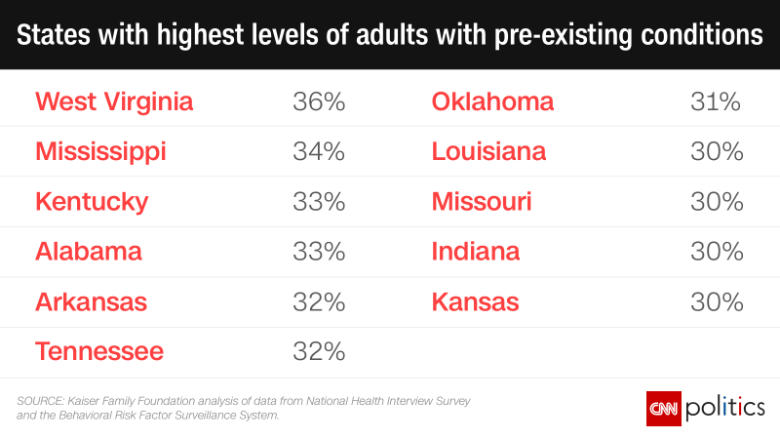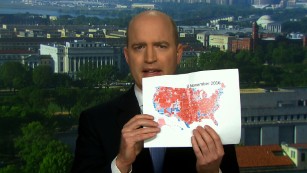(CNN)Later today, House Republicans will try to pass a health care bill that voids the federal mandate requiring insurance companies to cover patients with pre-existing conditions.
They insist that by creating high risk pools in states -- and using several billion dollars allocated to them to defray costs for patients -- they can ensure that no one with a pre-existing condition is left without coverage.
But subsidized high risk pools are not the same thing as a mandate banning discrimination against those with pre-existing conditions. It's just not.
And, looking at the states with the largest percentages of people under age 65 with pre-existing conditions, if the GOP's high risk pool plan goes south it runs the risk of more adversely affecting those in states that voted for President Donald Trump.
Of the 11 states in which 30% or more of the under-65 population has some sort of pre-existing condition, all 11 were won by Trump in 2016. Here's the full list (% of under 65 population with pre-existing conditions):
These numbers come from a 2016 study by the non-partisan Kaiser Family Foundation. (If you're wondering: The national average of people under 65 with pre-existing conditions not covered by pre-Obamcare health care is 27%.)
What those numbers mean is that many of the people most in favor of repealing and replacing Obamacare are also the people most likely to be directly affected -- and not in a good way -- if the new GOP bill becomes law.
It's not immediately clear what the political ramifications of that reality would be.
On one hand, Republicans have a cushion in most of these states, politically speaking, and so may be able to withstand some degree of fallout even if the GOP plan doesn't work out as planned.
On the other, people tend to pay more attention -- and be more unhappy -- when a change made by Congress directly impacts something they have relied on. And, if the House GOP's change on pre-existing conditions means that people in the 11 states above can't get any sort of coverage, there could be a political price to pay.





No comments:
Post a Comment